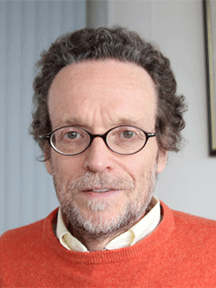By Paige Sullivan
On September 27, the Beta of Georgia chapter of Phi Beta Kappa co-sponsored Thomas Pogge’s lecture, “New Medicines: Pay for Performance” at Agnes Scott College in Decatur, Georgia. Pogge, the Leitner Professor of Philosophy and International Affairs at Yale University, spent the evening educating the audience about global poverty and how the Health Impact Fund is both an ethical and effective way to eradicate illnesses that are often a result of extreme poverty.
Pogge began by noting, “There is a direct relationship between global poverty and global health.” According to his research, out of the more than 7 billion people that populate the globe, around 900 million are undernourished. Economically speaking, a third of all people exist in the lower twenty percent of income rankings. He went on to argue that, though people might think otherwise, global poverty is the cause of more deaths than natural catastrophes by a healthy margin.
A solution that he proposed in his lecture was that, because “poverty develops differently in different countries” and “local factors are not solely responsible for poverty,” there needs to be a broader governmental and global shift in healthcare systems and pharmaceutical distribution. He described a shift in governments from “national to supranational,” the problem being that “it’s not clear, it’s not democratic, and big money can get in on the act and influence the government” in terms of taking action on these health issues.
Pogge, president and director of the Management Team of the Health Impact Fund (HIF), described this organization as one such solution to the global poverty and global health crisis. Currently, he argued, the issues with pharmaceuticals are that product patents are marketed to the rich, products are developed for “rich diseases” (i.e., cancer as opposed to malaria), and they are developed inefficiently.
What the HIF proposes is a way to fund and promote innovation in developing necessary pharmaceuticals and patents. “The Health Impact Fund lets innovators decide what needs addressing,” Pogge said. “It lets them define the finish line.”
The HIF provides the monetary support to incentivize tackling diseases that greatly impact the poor. Funds would be awarded to innovators based on the calculated global impact their product would leave, and products would be developed at the lowest possible cost to ensure greater accessibility.
Pogge argued for the feasibility of this kind of program, noting that, unlike many pharmaceutical products, there was a decreased chance of litigation because of the little profit these drugs would produce, though their medical gains would be great.
The opening to a similar lecture Pogge gave in 2011 for a TEDx talk in Canberra sums up his argument well: “I hope you are all healthy, and I hope we all will remain healthy for the indefinite future. But that hope is a little unrealistic,” he said. “And so I’ve got a second backup hope: that insofar that we have health problems, we will have good medicines to take care of them. Medicines are very cheap to produce, and they are very effective—much more pleasant, actually, than the alternatives.”
For more information on the Health Impact Fund, visit www.healthimpactfund.org.
Paige Sullivan is a senior at Agnes Scott College double majoring in English/creative writing and psychology. Agnes Scott is home to the Beta of Georgia chapter of Phi Beta Kappa.




